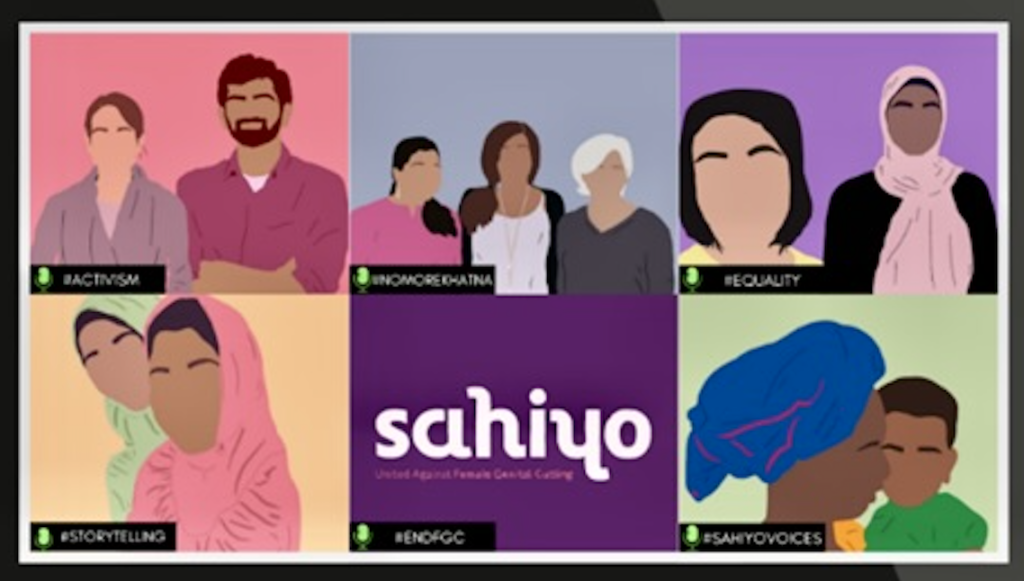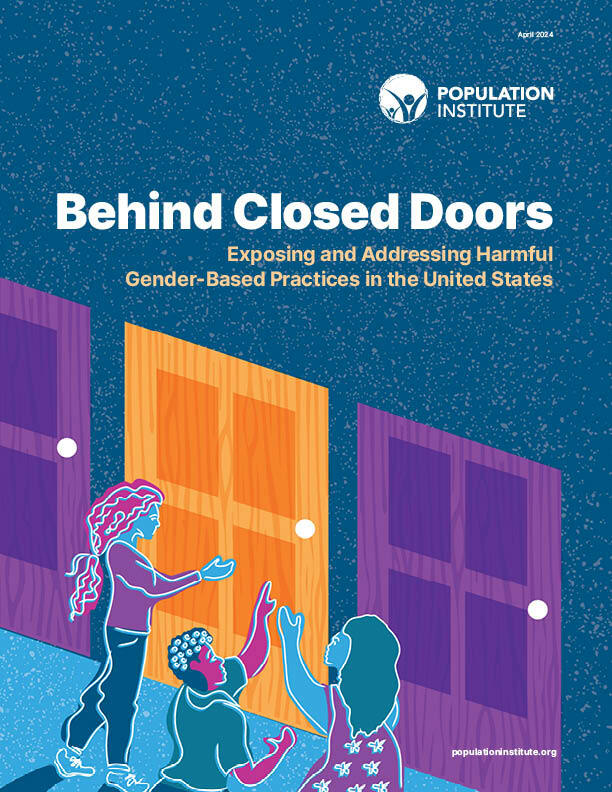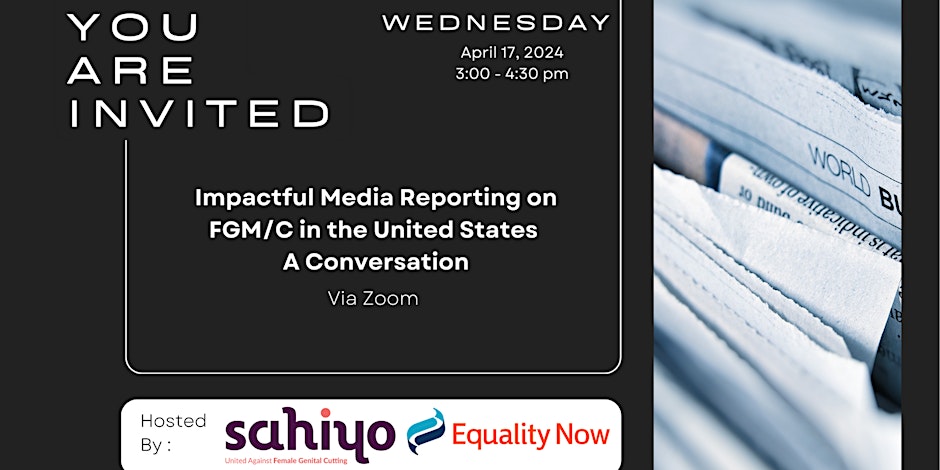U.S. Activists Retreat 2024 Frequently Asked Questions

Who is this retreat for? Sahiyo is pleased to announce that the 2024 U.S. Activists’ Retreat to any person connected to a community or communities engaged in the practice of FGM/C and who is interested in ending the practice of FGM/C. Learn more about what the Retreat is all about from past retreat attendees who have written for our blog! Also watch: [youtube url= https://www.youtube.com/watch?v=Q6gC9F5pwI4] I am not an FGM/C survivor/I was subjected to FGM/C but I do not recall my experience/I was subjected to FGM/C but I have had no adverse effects from my experience. Am I still welcome? Yes! One does not have to be subjected to trauma or have a trauma response to have an interest in ending the practice. Everyone has a responsibility to do something and everyone interested in doing something can benefit by meeting with others who want to take action and learn more about what can be done. How much does it cost to attend the Retreat? There are no fees to attend Sahiyo’s Activists Retreat. Retreat registration is completely free and the virtual nature of the 2024 U.S. Retreat means that Retreat attendees should not incur any travel costs to attend the Retreat! How do I sign up for the Retreat? You can find our 2024 Activists’ Retreat interest form linked [HERE]! First-time attendees may be reached out to by a Sahiyo volunteer or Activists’ Retreat Planning Committee member for an informal phone or Zoom conversation regarding the Retreat and to answer any additional conversations you may have. We hope to hear from you! Is it possible to attend the retreat for just a single day? The purpose of the Activists Retreat is to allow activists to get together over the course of an entire weekend to build community, find support, and plan for future activism to end FGM/C. We ask that retreat attendees be able to attend all three days of the retreat in order to participate in all of the events, discussions, and presentations we have planned. We understand that a three-day virtual retreat may feel like an intense commitment, but we assure all prospective attendees that there will be many breaks and moments for self-care built in to make the Virtual Retreat an enjoyable, healing experience of community-building and learning. What should I bring to the Activists Retreat? Bring yourself, an internet connection, and your enthusiasm! What sorts of things will I learn at the Activists Retreat? A more complete agenda of events will be released to all Retreat Attendees closer to the date of the event. At this time, Retreat Attendees can expect to meet other activists, speak about their experiences as activists, and also learn from guest speakers. We will also have discussions about future activism, community building, and the Sahiyo Activists’ Toolkit. Learn more about Activists Retreat by visiting our blog and hearing from past participants themselves. Do you have more questions? Email Samman Masud at Samman@sahiyo.org today!
Reflections on Pain, Stigma, and Activism

By Tanya Samyak On December 6, 2023, Sahiyo organized a webinar titled Pain, Stigma and Sexual Health: Healing through Storytelling in collaboration with TightLipped, a grassroots organization supporting and advocating for individuals who experience chronic vulvovaginal and pelvic pain. Panelists shared their personal stories, which touched on topics survivors of female genital cutting (FGC) also can relate to like healing through storytelling and sexual health issues. The panelists included: Lakshmi Anantnaryan, who is an international women’s rights activist and alumni of Sahiyo’s Voices to End FGM/C project Grace Culqui, a women’s health advocate and an intern at TightLipped Lomaris Diaz, a veterinary anesthesiologist and active member of TightLipped Lakshmi, who has endometriosis, talked about how her inability to conceive a baby was the utmost concern for everybody around her and how much she was affected by societal beliefs that women’s bodies were only meant for reproduction and penetrative sex. In my opinion, this way of imagining the utility of women’s bodies demonstrates society’s ignorance about women’s sexual health. Her story also helped me understand that those experiencing endometriosis not only deal with physical pain but also emotional pain and a sense of embarrassment because of these patriarchal notions about a woman’s body. I also listened to the panelists who have vulvovaginal conditions speak about how they internalized the stigma they faced. Grace shared how some women experience shame in their relationships and an inferiority complex due to their sexual health challenges. She described how she felt she had to prove to her partner she was worthy to be in a relationship due to shame around her condition. Her experience articulates for me that there is a lack of understanding or representation of the conditions women may experience in mainstream media. Finally, Lomaris shared her experiences with healthcare professionals who didn’t understand her condition and further that there is a lack of information about chronic vulvovaginal conditions in the American gynecology curriculum. I understand now how this lack of education for healthcare providers can challenge someone with a vulvovaginal condition when they are seeking a healthcare provider who can properly diagnose their conditions and give conscientious support. These systemic issues can add to women’s suffering, and I commend Sahiyo and TightLipped for fostering a healing space and community that promotes the sexual health of survivors of FGC and vulvovaginal conditions.
New Report from the Population Institute on GBV: “Behind Closed Doors: Exposing and Addressing Harmful Gender-Based Practices in the United States”

Read more in “Behind Closed Doors: Exposing and Addressing Harmful Practices in the United States.” Sahiyo is proud to help announce the publication of a new report by the Population Institute a nonprofit that advocates for gender equality and universal access to sexual and reproductive health services, titled, “Behind Closed Doors: Exposing and Addressing Harmful Gender-Based Practices in the United States”. The report tackles various forms of gender-based violence (GBV) occurring in the United States including female genital mutilation/cutting (FGM/C); child, early, and forced marriage/union (CEFMU); femicide, andvirginity testing. The report seeks to emphasize how prevalent these practices are in the United States, as they are often dismissed as harms that occur in foreign countries or other cultures, not here in the United States. However, these forms of GBV are increasing in the U.S. As reported by the Center for Disease Control and Prevention, with more than 500,000 women and girls are estimated to have undergone or are at risk of undergoing FGM/C in the US. The Tahirih Justice Center reports that at least 300,000 minors are estimated to have been married in the United States between 2000 and 2018. While theViolence Policy Center states that the rate of gender-based murder in the U.S. continues to be the highest amongst high-income countries, with a reported 2.2 per 100,000 women being intentionally killed in 2021. Women in the U.S. are 28 times more likely to be murdered with a gun than women in peer countries. These statistics highlight the need for educating people in the U.S. about the prevalence of various forms of GBV. This report also hopes to bring this crisis to the attention of U.S. policymakers, and other government officials who cansupport advocating for culturally competent legislation, survivor-focused initiatives and programs, and comprehensive sexuality education to counter these harms. Gender-based violence affects us all. Let’s create a culture of support and solidarity to uplift and empower survivors. Read about the widespread nature of harmful gender-based practices in the United States in the Population Institute’s latest report, “Behind Closed Doors: Exposing and Addressing Harmful Gender-Based Practices in the United States”.
Upcoming Event: “Impactful Media Reporting on Female Genital Mutilation/Cutting in the United States: A Conversation”

Date: April 17, 2024 Time: 3:00 PM to 4:30 pm EST Registration: https://bit.ly/FGMCMediaReporting Join Equality Now and Sahiyo U.S. on Wednesday, April 17, 2024, at 3:00 PM EST, for a discussion that will explore the intricacies of reporting on female genital mutilation/cutting (FGM/C). This invitation extends to all media professionals — reporters, journalists, editors, and communication and content creators — who are looking to deepen their understanding and refine their approach to covering FGM/C. This event is particularly timely, given the current landscape where misinformation about FGM/C often leads to narratives that are uninformed, conflated, or misrepresented The Need for Nuanced Reporting: FGM/C is recognized as a human rights violation and poses unique reporting challenges. It is essential for media coverage to navigate these complexities with care in order to avoid inadvertently causing harm while staying true to the lived experiences of those impacted by FGM/C. This webinar seeks to address the topic by equipping attendees with the skills to report on FGM/C in a manner that is both sensitive and accurate. Who Will Be Speaking? The event will feature a panel of media and advocacy experts, including Senator Karen Kaiser, Emma Batha of Thomson Reuters Foundation News, journalist Milena Mikael Debass, and documentary filmmaker Milena Warns from Without Exception Films. The moderators of this event are Sahiyo Co-founder and U.S. executive director, Mariya Taher, and Equality Now Communications officer for North America, Mel Bailey. Attendees will gain insights on: The prevalence and complexity of FGM/C within diverse cultural contexts in the U.S. The importance of engaging with survivors or those at risk with informed sensitivity. Strategies for using media platforms to raise awareness and educate the public on FGM/C. Analytical tools for covering related news, such as legal developments and community advocacy efforts effectively. Why Attend? This webinar represents an opportunity for media professionals to contribute meaningfully to the discourse on FGM/C. Through informed reporting, the media can play a pivotal role in supporting survivors and educating the public. This event is not just about reporting on a sensitive topic; it’s about doing so in a way that respects the dignity of those impacted and contributes to positive change. If you’re involved in media or interested in how media and communications can influence social issues thoughtfully, this event is for you. It’s an opportunity to learn, ask questions, and consider the best practices for reporting on cultural practices that can lead to harm, such as FGM/C. Register for the event here
